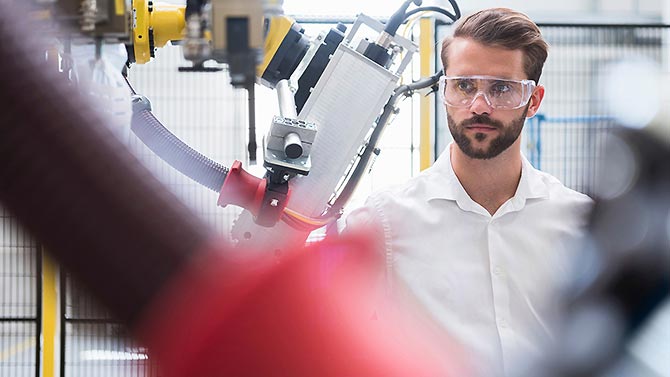Which technologies will influence your sector?
Participants in the Innovation survey Netherlands 2018 offered an insight into what they believe to be the main innovation trends. Of which technologies do they expect the most? For the fourth consecutive year, they also mentioned the most innovative organisations. Chief Digital Officer Ilja Linnemeijer provides an explanation.


Data analysis is a clear front-runner among the new technologies mentioned by the survey respondents and is also the most established. Just about all respondents said this technique was important and most of them already use it for organisational processes, products and services. Artificial intelligence (AI) is a logical continuation of data analysis, and a similar number of respondents said this was important. We expect this technology to be used increasingly in the near future. A third of all respondents already use AI and many respondents have already taken part in pilots and other practical applications.
State of Tech
Each year, PwC collaborates with StartupbootCamp to predict technology trends in its State of Tech report. This year, our respondents reacted to the predictions for 2018.



Blockchain leads to critical reactions
At the moment, blockchain is rarely used, even though the majority of respondents have already experimented with it. We noticed that respondents who use blockchain rarely use it to reduce costs, even though improved efficiency - and thus lower costs - is one of the main advantages one can expect. The coming years will demonstrate to what extent blockchain will really take off. We have noticed that our clients are still critical about the returns of blockchain-related investments. Ilja Linnemeijer: "Although blockchain was first seen as something magical, the initial enthusiasm now appears to have faded somewhat. This slight disappointment is in keeping with what happens during most hypes. However, I still think enthusiasm can be restored with a few good use cases, which I expect to appear within a few years."
Intelligent things under development
Using intelligent things is another trend that is currently under development. Intelligent things are objects that collaborate with people and their surroundings via AI and machine learning, like via the Internet of Things. The majority of respondents do not yet use this technology, but are trying to put things in place for their own organisations. Linnemeijer: "Access to a 5G network is crucial for intelligent things. The Internet of Things will really take off once we can share a lot more data via the network. When this happens, we will also see a rapid change in business models."
Mixed reality - the neglected child
Mixed reality and speech technology are now barely used by our respondents. And even if they do use them, they mainly do so to improve customer experience and product quality. Contrary to our expectations, it is rarely used to improve customer experience or increase knowledge about employees, even though it is ideal for doing so. Linnemeijer refers to mixed reality as a "neglected child”. Ilja Linnemeijer: “When combined with AI, it offers fantastic opportunities. For instance with regard to e-learning, maintenance work, communication with customers, and remote control. We will certainly hear more about it in the future, even though developments are currently slower than expected."
Expected impact of technology
Respondents mainly invest in new technology to reduce costs and improve quality within their existing business models. As a result, the impact of technology is primarily expected to affect their range of products and services. In general, participants expect an impact on their business models, as well as customer involvement and people & talent.
'Investment-related decisions concerning new technologies deserve the same businesslike approach as all other investments. What are the company’s business priorities, and which technologies can help to address them? The answer to this question will help to realise more effective investments.'
Most innovative companies
When it comes to the most innovative Dutch organisations, we have noticed the same three big names in the top five in recent years: ASML, Philips and DSM. ASML stands out above the rest this year. Payment service Adyen made a huge leap in the ranking, probably due to its public offering that generated a lot of publicity. Booking.com suffered a notable drop in the ranking. It appears the company, which is in the same phase of maturity as Coolblue, is less effective when it comes to putting its innovation capacity in the spotlight.
Agrifood and offshore
Ilja LInnemeijer: “ASML and DSM are excelling thanks to brilliant technologies, and Adyen and Coolblue are particularly effective when it comes to customer focus. However, I notice that, for example, no global players were mentioned from sectors like agrifood and offshore, which are more closely involved with b2b. My tip? Also look at such companies and try to learn from them. Our 2018 Global Innovation 1000 study also highlights a top three for technological companies with the largest R&D expenditure aimed at the consumer market: Apple, Amazon and Alphabet. They caught the eye of many respondents."

For the fourth year in a row, PwC researched the innovation climate in public and private
Contact us


















